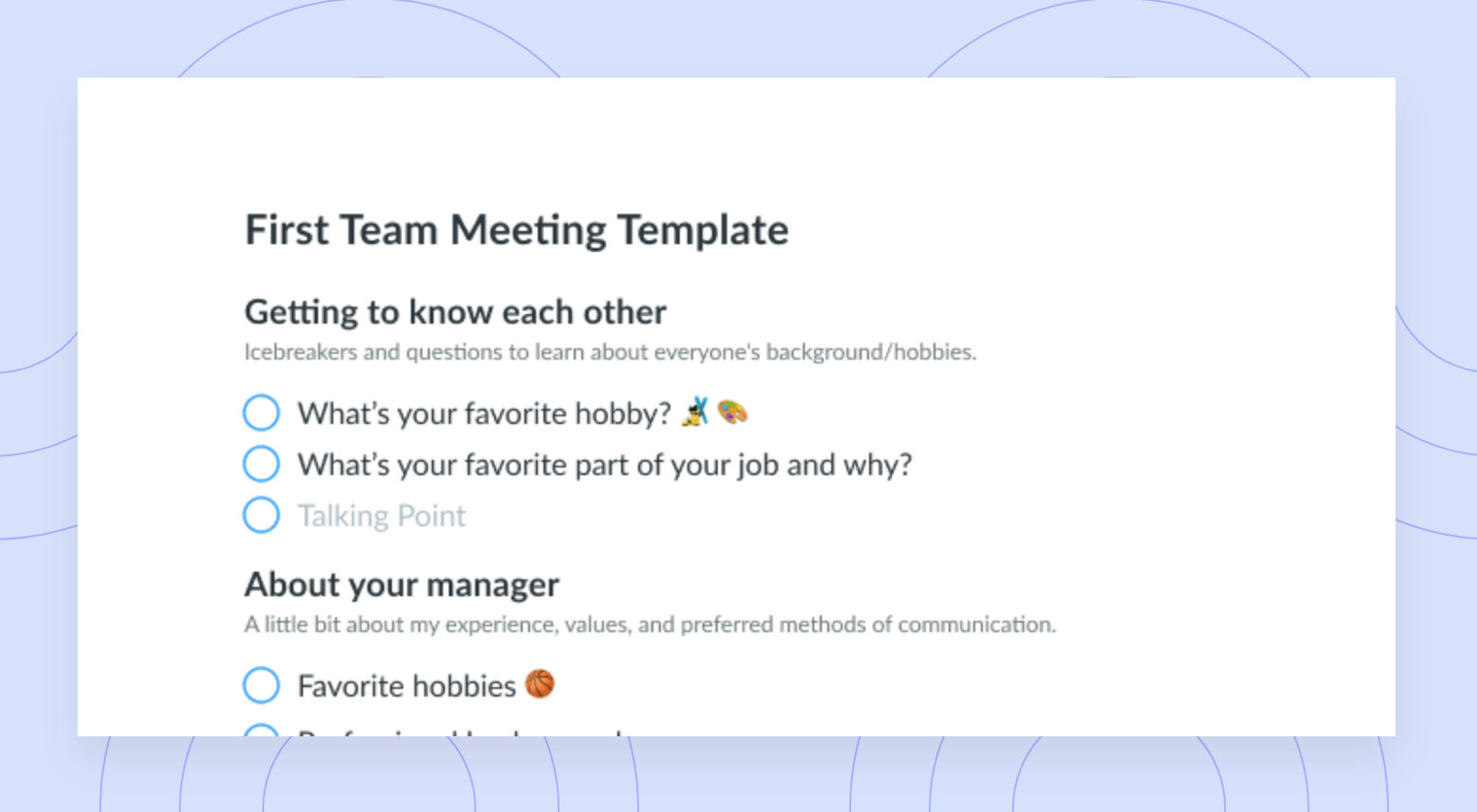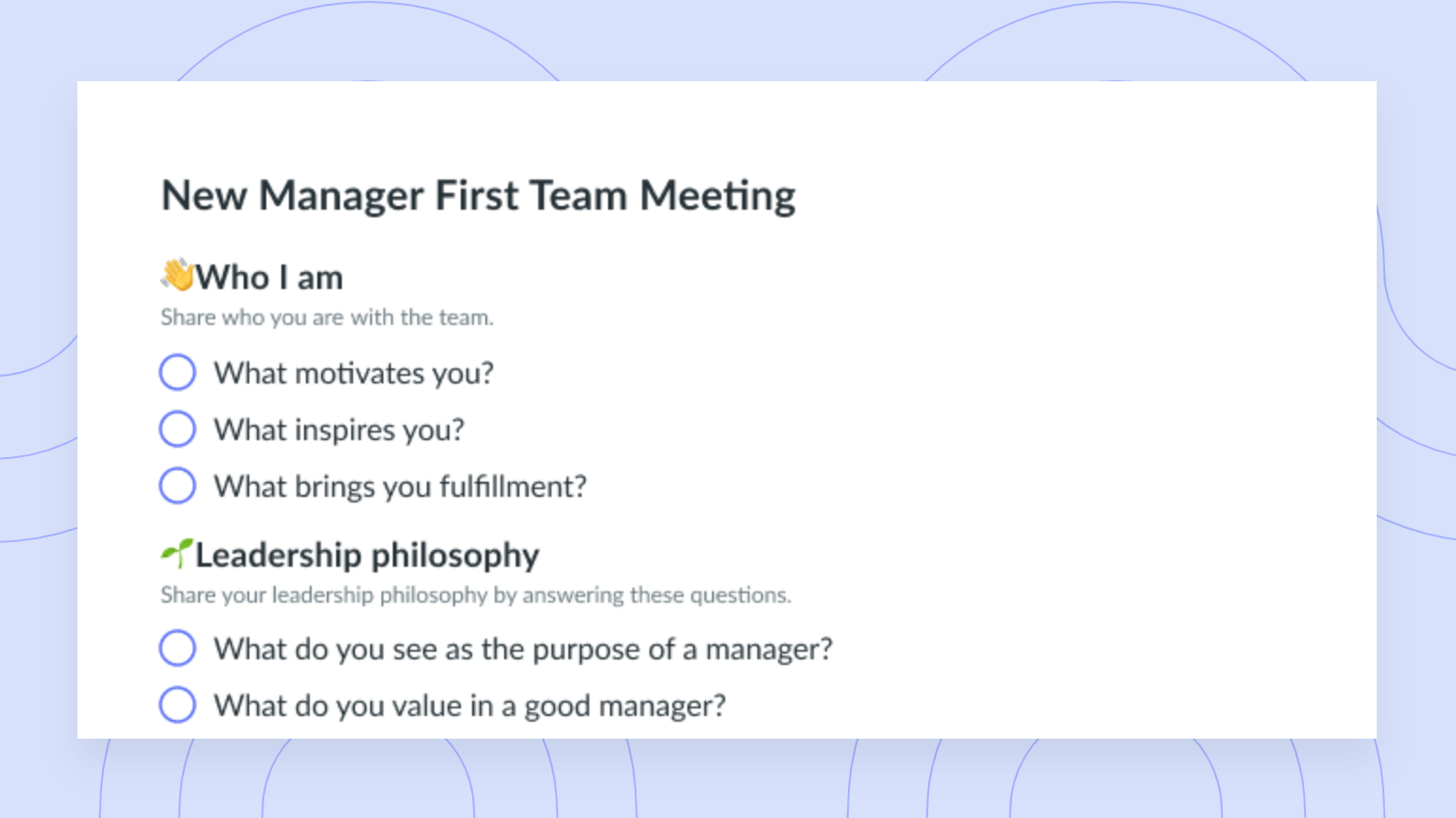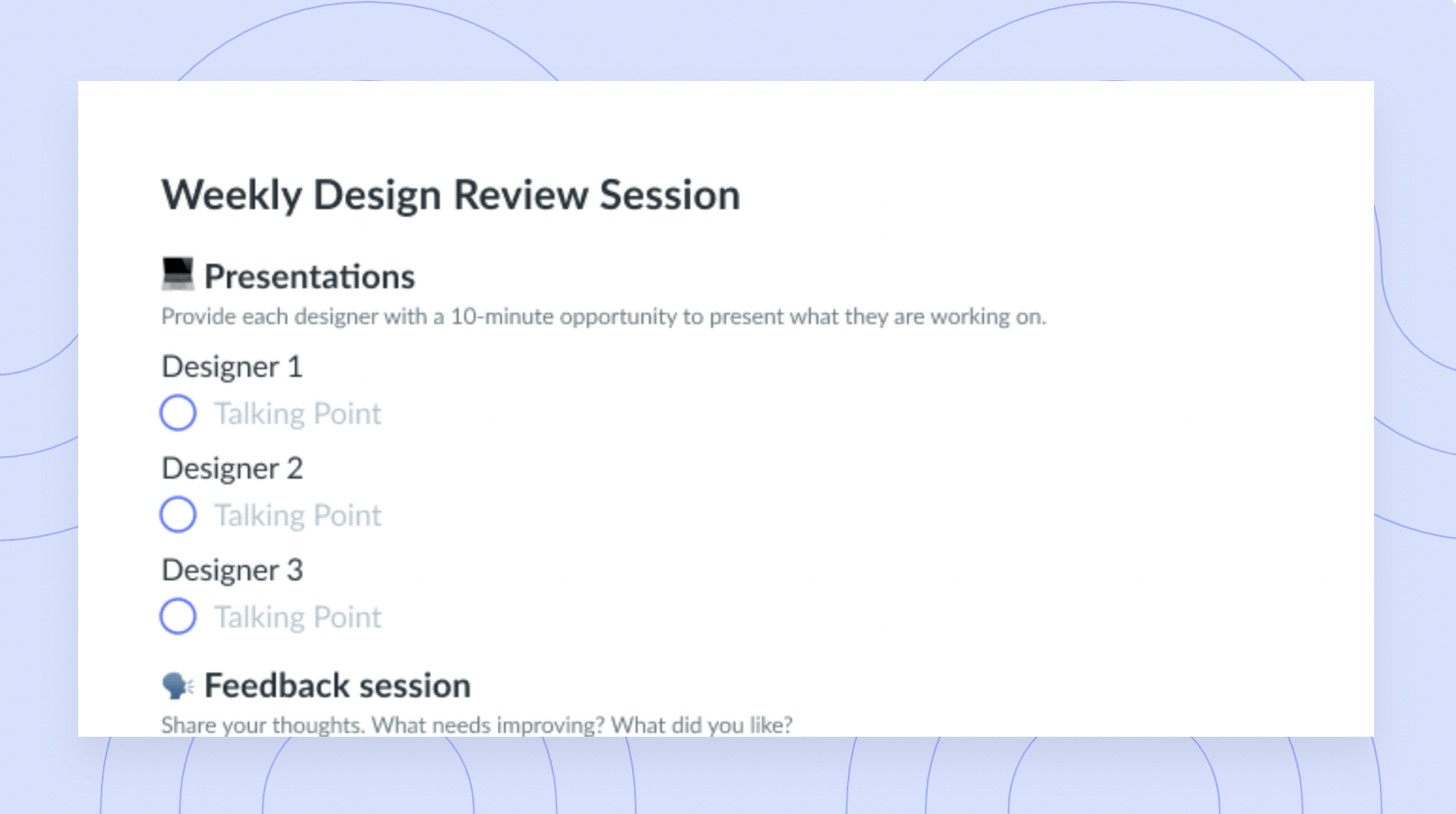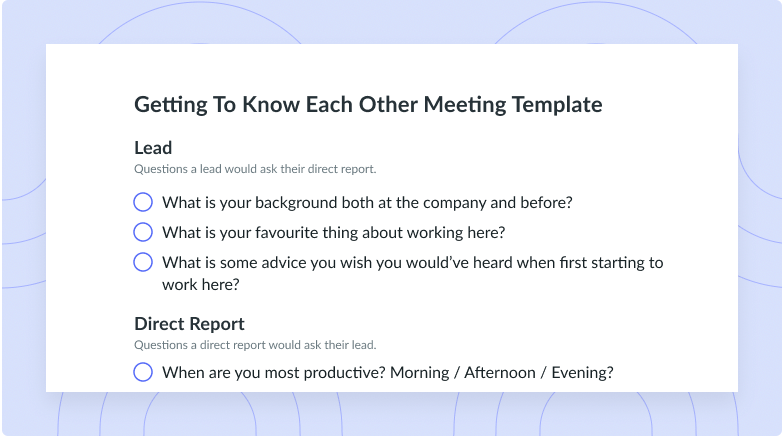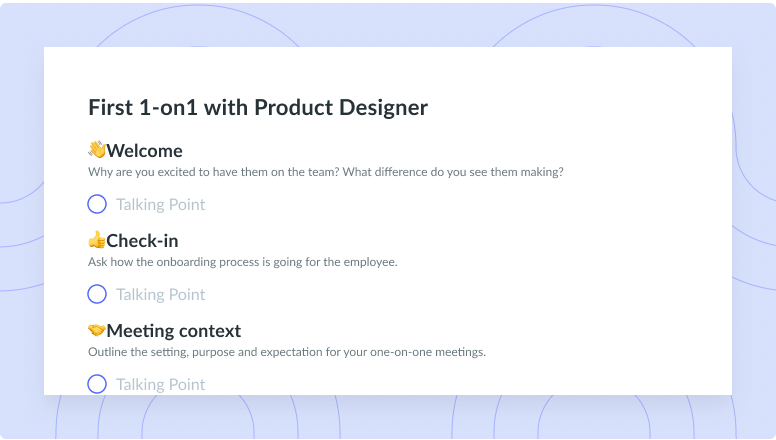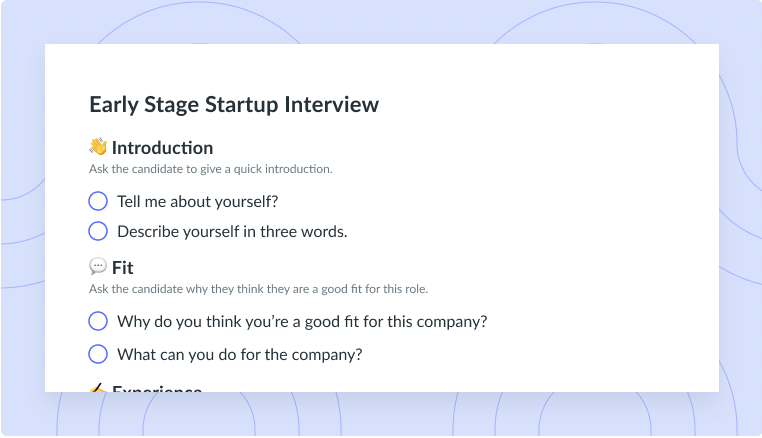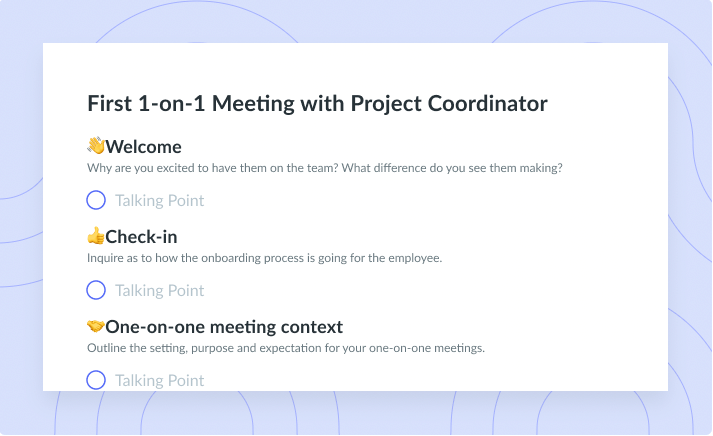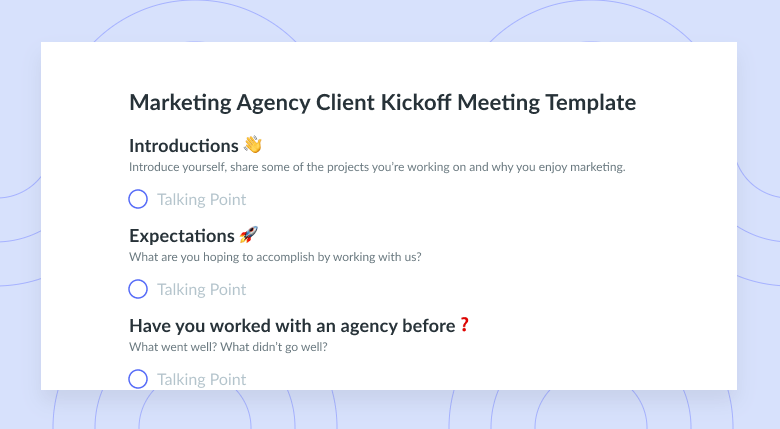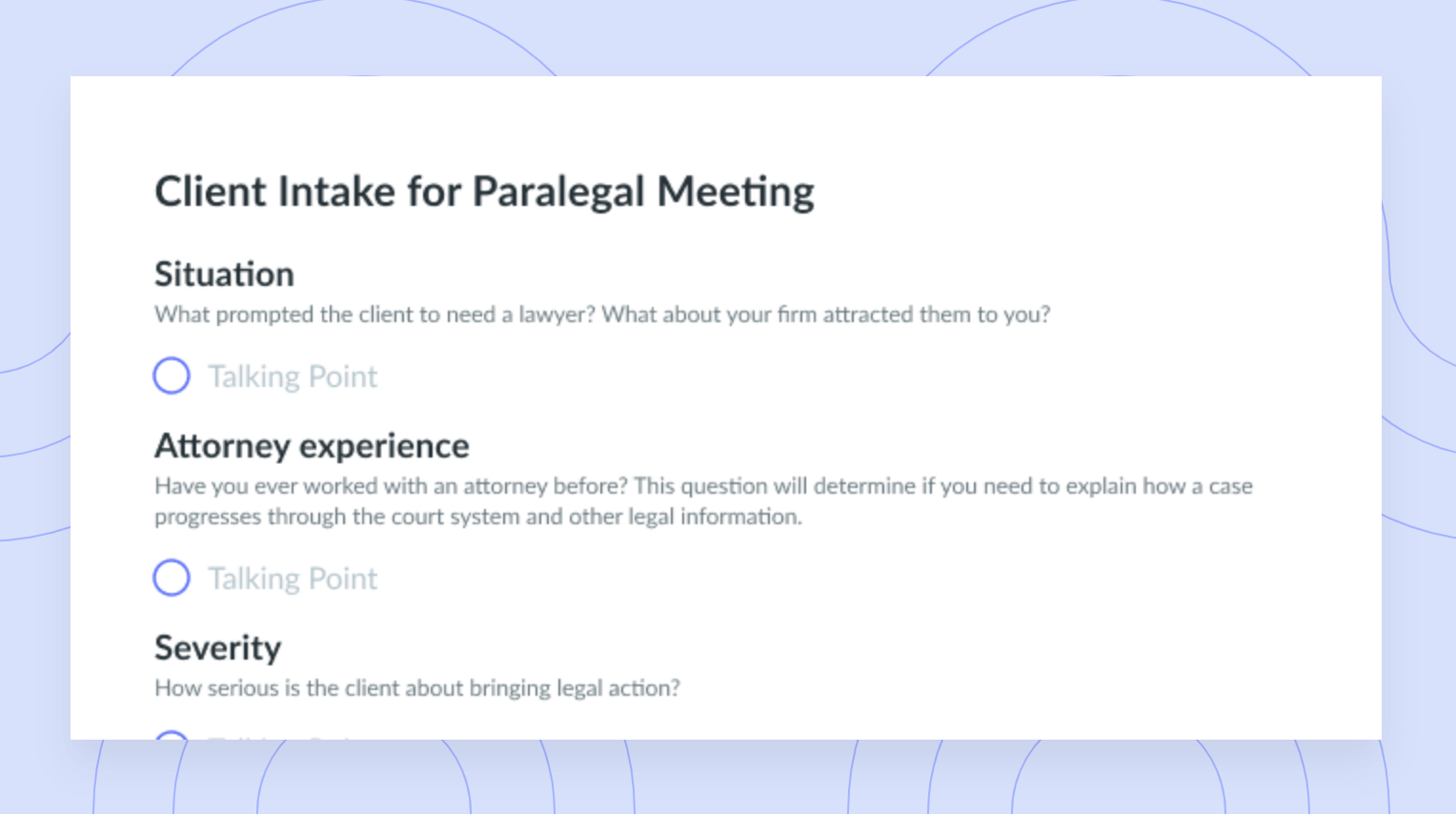Starting a New Job: Our Best Advice for a Great Start
By taking a few steps to prepare, you can minimize those first-day jitters and make great first impressions at your new job.
Congrats, you’re hired! The interview process is behind you, and the start date for your new job is quickly approaching. But the thought of actually starting your new position keeps nagging at you. How can you walk in with confidence and make the most of your first days at work? Below, you’ll find our best advice for starting a new job to help you feel more prepared for a great start.
- Our best advice to prepare
- Advice for your first week at a new job
- Why is the first week on a new job so important?
Our best advice to prepare for your first day on the job
While it’s natural to feel a little nervous about a new job, you can start off on the right foot with some simple prep. Go in prepared, and you’re that much more likely to make a positive first impression on your new colleagues. Below are some tips for starting your new job and acing your first day.
- Research ahead of time
- Contact your manager
- Ask how you can prepare beforehand
- Get your schedule
- Walk through your workday
- Introduce yourself to your new team
- Figure out what to wear
1 Research ahead of time
When you went to interview for your new position, you likely did some research into the company. Now that you’ve been offered the job, it’s time to do some more research. That way, you can walk into the office (or your company’s team communication tool if you’re remote) feeling a bit more confident.
To start your research, look at any notes you took during your job interview. This way, you know what lingering questions you need to answer. Do you know your colleagues’ names? What projects is the team working on now? Doing a bit of research into this all can help you go into your first day feeling friendly and eager to contribute.

Take notes!
Having a place to document your meeting notes will help you feel more organized as you are given lots of new information during your first few weeks at your new job. Try a tool like Fellow!
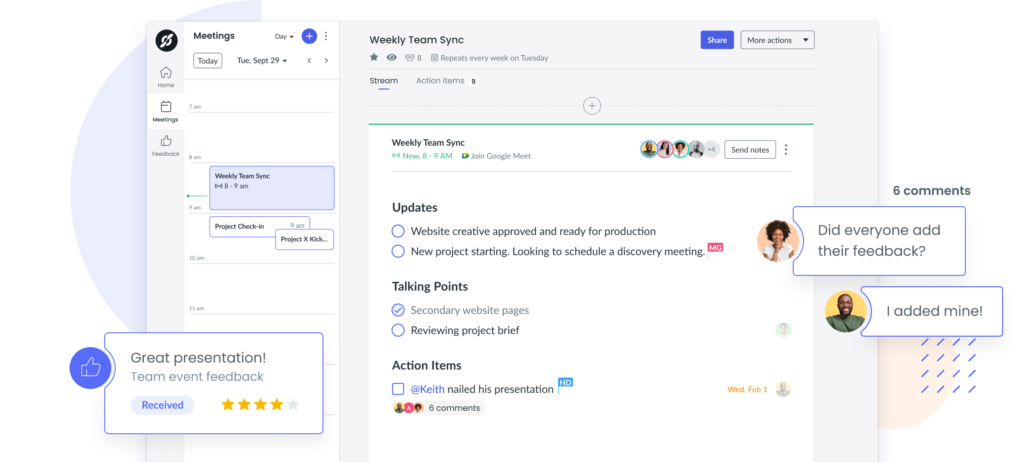
2 Contact your manager
Your manager played a key part in adding you to their team, so they likely have a strong vision for your time at the company. That makes them a great ally on day one – and long after. So before your first day, send your supervisor a quick check-in email. Alternatively, set up a one-on-one meeting for your first day.
In your email, ask for pointers – things both work-related and beyond – and show up to your meeting prepared with questions. Asking where you should park is as valid as wondering about what kind of training to expect in your first week. Don’t think too hard about it – you can open the conversation by simply asking how you can adequately prepare for your first day. This effort shows that you’re taking the initiative to do your best work from the jump.
3 Ask how you can prepare beforehand
Your manager likely has a plan for your first day – often your first 90 days – on the job. Reaching out to them ahead of time can elucidate this plan and show you’re already invested in your role.
Let’s say that, when you email your supervisor to check in, they ask you to arrive with ideas for an advertising campaign. That’s great – now you know what to expect on your first day. You can look into past campaigns the company has conducted to get started on your first-ever assignment.
And here’s the best part: When you walk in on Monday, you won’t be scrambling to think of ideas. Your contributions will be more relevant and thought-out, and your colleagues can get a glimpse of how great an asset you’ll be to the team.
4 Get your schedule
Your last job may have had you starting at 10, but your new job might want you to arrive by 9:30. Assuming your start time can have you walking in late on your first day, so confirm your schedule ahead of time. Check in with your manager to nail down your start time – and then, arrive early. Leave some time to spare for chatting with a coworker on the way to your desk.
To avoid any mixups, reach out to your supervisor to confirm your schedule – not just your start time, but your lunch break and end time. Even if they already sent your start time, there’s no harm in asking again to show that you’re dedicated to being on time.
5 Walk through your workday
Based on what your manager tells you, you should run a “sample” workday so you can make sure you have everything you need. If you’ll be working at the office, drive there and back around when you’ll normally be commuting. This way, you get an idea of what traffic could be like and know how to plan accordingly.
If you’ll be working from home, check your workspace to make sure you have everything you need. Do you have a few pens so you’re not searching for one during a meeting? Is your laptop fully charged? It also wouldn’t hurt to test your company’s video conferencing app and learn how to navigate it.
Finally, check to make sure any software you’ll need is up to date and consider adding new platforms. For example, if you need a user-friendly digital task list you could share with others and use in meetings, Fellow is a great choice. You can assign tasks that arise during meetings to yourself and others or just use the action items suite as a personal task list.
6 Introduce yourself to your new team
Your manager should introduce you to your team on your first day (or, in some cases, during the interview process). You should also make your own efforts to connect with your new colleagues early on. This way, you can ask questions you haven’t yet been able to answer. You can also ask your coworkers to share any tips they wish they’d had on their first day or just general career advice. Let them know you’re excited to meet them and work with them from the get-go.
If you’ll be working remotely, you should still reach out. After all, working in an isolated environment can get pretty lonely, and chatting with coworkers can nip that feeling in the bud. Sending a friendly email can help both you and your colleagues feel more comfortable interacting and working together.
7 Figure out what to wear
Does your new company allow for business casual attire, or are employees showing up to work in suits? Confirming the company’s dress code can help you avoid the embarrassment of arriving to work all formal when jeans are the vibe. If you work remotely, you should ask what attire is expected during camera-on video conferences as well.
Sending a quick email to confirm the dress code with your supervisor can dispel any confusion and help you walk into work with confidence. Once you’ve gotten that, get your outfit together early so you’re not rushing to find something in the morning on your first day.
Advice for your first week at a new job
Succeeding at your new job goes well beyond acing your first day. It means having the best possible first week. The tips below can help you do exactly that.
- Connect with a colleague
On your first day, your manager or someone from the human resources department might show you the ropes of your new job. These colleagues, though, might feel like supervisors, and getting to know higher-ups can feel intimidating. Try introducing yourself to other colleagues and establishing a working relationship early on – basically, try finding a work friend.
Ask your colleagues if you can join them for lunch, or invite them out to your favorite spot. If you work remotely, see if you can set up a virtual lunch break with a few colleagues, almost like an online break room. In these informal settings, your colleagues might fill you in on what managers do and don’t like – and how you can get ahead.
Before your first day, you might want to search on LinkedIn to find your company’s employees. This can teach you about your colleagues’ interests and help you determine who might become your best work friend. Stick only to LinkedIn – other platforms are too personal for a first encounter. Use what you see for context, not as conversation topics.
- Remember to take breaks
Your first few days (and maybe even weeks) in your new position might come with a learning curve, so go easy on yourself. During your training period, take a few minutes to step away from work and process what you’ve learned so you don’t get overwhelmed. Many experts suggest taking breaks every 90 minutes, even if you just quickly stretch outside or grab a snack from the break room.
If you’re working remotely, taking breaks might slip your mind entirely. After all, when your office and home are one and the same, it’s harder to find a space that doesn’t feel tied to your work. That said, taking breaks while working remotely is just as important as stepping away from your desk at the office. Breaks can allow your mind to reset, which can lead to sharper focus and more productivity.
- Care a bit extra for yourself outside of work
You’ll be working hard at your new job – even the easiest transition is at least somewhat tough. That’s why you should save some time for yourself outside of work so you don’t get exhausted too quickly. Set aside some time to wind down at night before hopping straight into bed. You should also allow yourself some time in the morning to get settled.
- Get to work early
Tardiness is among the most common employee habits. A survey from CareerBuilder found that 25 percent of employees are late at least once a month. That report also stated more than two in five employers have fired someone for being late. So clearly, arriving late to work during your first week can be an immediate red flag to your employer.
To make sure your manager doesn’t question your work ethic, make the necessary preparations to show up early to work. Some experts recommend getting to work 30 minutes before your shift starts. This practice can help you feel calmer and more prepared to start the workday. After all, you won’t be trying to rush to your desk before your manager notices you’re late.
- Ask lots of questions
Your manager and fellow team members aren’t expecting you to know everything on your first day. Don’t be afraid to ask lots of questions or get clarification about information whenever necessary. Asking questions shows that you’re willing to learn.
You can even ask to receive constructive criticism about any recent tasks you’ve completed. If you’re working remotely, you can send a team member or supervisor an email or ping them on your messaging system. You never know what you might learn if you don’t ask.
Why is the first week on a new job so important?
Your first week on the job is a critical time to make great first impressions. It’s also when you establish your workflow and get acclimated with your work environment. In fact, research from Sapling HR found that the onboarding process at most companies lasts only a week. This same report also found the average new hire will have more than 50 activities to complete during their onboarding process.
During this time, you’ll be meeting new people, attending training sessions, and absorbing all kinds of information to effectively do your job. So being and presenting your best self is crucial to establishing a firm foundation at your new job.
Getting off to a good start
Initially, starting a new job can seem stressful and overwhelming. Preparing a bit ahead of time can be all you need to ace your early days on the job. Plus, you were hired for a reason – your manager and colleagues are excited to see the great things you’ll bring to the team. So have some confidence as you walk into your new job – you’ve taken the time to prepare for a great start.





![13 Tips for Taking Over an Existing Engineering Team [+ Free Templates]](https://fellow.app/wp-content/uploads/2022/07/Taking-Over-an-Existing-Engineering-Team-2.jpg)



